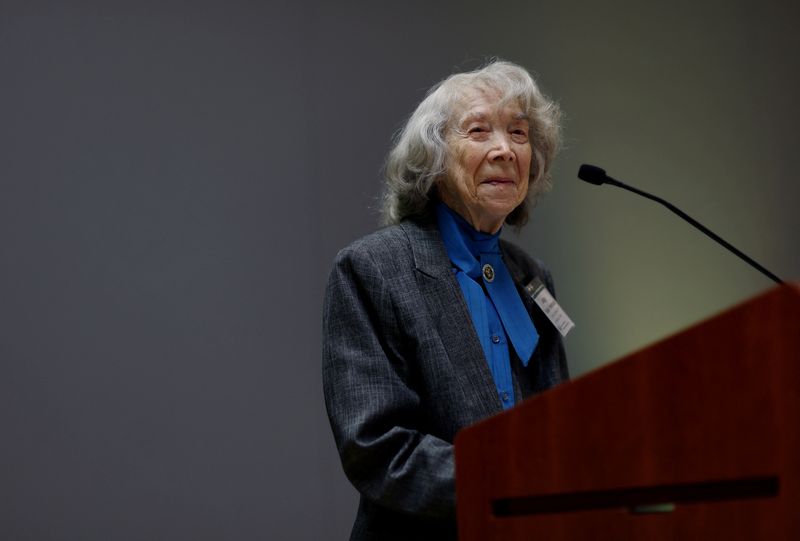By Blake Brittain
WASHINGTON (Reuters) -A 97-year-old judge who was suspended from a U.S. appellate court last year after being accused of unfitness due to cognitive and physical impairment related to her age lost a lawsuit on Tuesday that she had filed in a bid to return to work.
Judge Pauline Newman challenged her suspension from the U.S. Court of Appeals for the Federal Circuit, which focuses on patents, trademarks and certain other matters, in a lawsuit alleging that a 1980 law called the Judicial Conduct and Disability Act that sets out the process for removing judges ran afoul of the U.S. Constitution.
U.S. District Judge Christopher "Casey" Cooper on Tuesday ruled against Newman's claims that the law violated constitutional due process rights. Cooper in February rejected other constitutional claims Newman had raised.
Her attorney Greg Dolin told Reuters that Newman will appeal the decision. A spokesperson for the Federal Circuit declined to comment.
Judge Kimberly Moore, the Federal Circuit's chief judge, said in orders made public last year that Newman had shown signs of serious cognitive and physical impairment and accused her of refusing to cooperate with inquiries into her mental health.
Newman is the oldest U.S. federal judge not to have taken part-time senior status. Appointed to the Federal Circuit by President Ronald Reagan in 1984, she is a respected figure in patent law and a prominent dissenter at the court, which frequently rules on cases involving major companies.
The fight over her suspension has marked a rare public dispute over U.S. judicial fitness. Tuesday's ruling coincides with calls by some Democratic lawmakers for President Joe Biden, 81, to step aside in this year's presidential election over concerns about his fitness.
The Federal Circuit's judicial council suspended Newman last September for at least one year or until she sits for court-ordered medical examinations. Newman has defended her fitness, citing reports from doctors she chose, and made several public appearances since her suspension.

In his February decision rejecting most of the claims in Newman's lawsuit filed against the council, Cooper said that earlier court rulings have "consistently affirmed the judiciary's authority to police itself."
Separately on Tuesday, the Federal Circuit made public an order requiring Newman to explain why her suspension should not be renewed. The court said in the order that the judge's refusal to cooperate with the council has continued.